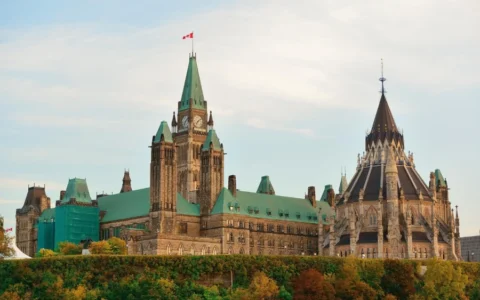WASHINGTON — As the political landscape heats up for the November elections, Donald Trump has reiterated his controversial stance on ending birthright citizenship. This contentious policy, first introduced via a campaign video in May last year, proposes that children born in the U.S. to non-legal residents should not automatically receive citizenship.
Trump’s initiative aims to modify a fundamental principle that has been part of American constitutional rights for over a century, rooted in the 14th Amendment. This amendment explicitly states that all persons born or naturalized in the United States are American citizens. Historically, this has included the children of non-citizens, which legal scholars across various ideologies recognize as a clear interpretation.
However, Trump’s proposal has reignited debates and is poised to prompt significant legal challenges, echoing the disputes that arose from his travel ban imposed at the start of his presidency in 2017. According to Omar Jadwat from the American Civil Liberties Union, who previously contested the travel ban, this move by Trump blatantly conflicts with constitutional protections and would “essentially be an attempt to tear down one of the core constitutional protections.”
The concept of birthright citizenship, according to Trump, places the U.S. in a minority position globally, asserting that it incentivizes illegal entry into the country. He argues for a system where at least one parent must be a U.S. citizen or legal resident for their child to obtain citizenship. His administration also aims to curb “birth tourism,” where people travel to the U.S. to give birth, ensuring citizenship for their child.
Critics of the plan, like Mark Krikorian of the Center for Immigration Studies, acknowledge the Supreme Court might not favor the president should this issue escalate to the judiciary. If unsuccessful in the courts, Trump’s next recourse would likely involve pushing for a constitutional amendment, a challenging and uncertain path.
Trump’s push to reshape U.S. immigration policy does not stop at legal challenges. His proposal includes administrative changes where federal agencies, like the Social Security Administration and the State Department, would require proof of the parents’ legal status before issuing Social Security numbers or passports to newborns.
The impact of such a policy would be far-reaching, complicating the registration of all births in the U.S. and potentially leading to significant bureaucratic hurdles for all parents, irrespective of their immigration status. This represents a stark departure from the current practice where a U.S. birth certificate suffices to establish citizenship for newborns.
While Trump’s firm stance on immigration is clear, the broader implications of his proposal reflect a radical shift in fundamental citizenship rights, sparking a debate that is likely to continue well into the electoral cycle and possibly beyond.






